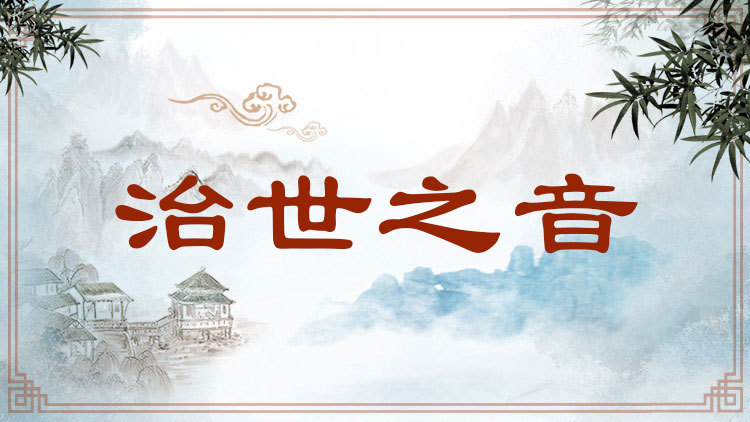治世之音
Music of an Age of Good Order

指太平时代的音乐。儒家认为,音乐与社会政治相互联通,音乐能反映一个国家的政治盛衰得失及社会风俗的变化。乐教能促使政治清明,社会秩序稳定;反过来,太平时代政治开明、和美,其音乐、诗歌作品一定充满祥和欢乐。“治世之音”也被用来指《诗经》中的某些美颂之作。
Confucian scholars believed that music interacts with both society and its political evolution; it also reflects the rise and decline of a state's political strength and changes of social customs. Music education fosters good governance and social stability. In an age of peace and stability with enlightened governance and harmony, its music and poetry are characterized by serenity and joyfulness. "Music of an age of good order" also refers to some eulogies in The Book of Songs.
引例 Citation:
◎凡音者,生人心者也。情动于中,故形于声。声成文,谓之音。是故治世之音安以乐,其政和。(《礼记·乐记》)
大凡音乐都产生于人的内心。情感在心中激荡,所以表现为各种声音。声音组合成曲调,就叫做音乐。所以,太平时代的音乐祥和欢乐,这是因为政治宽和的缘故。
All music is born in people's minds. One's stirring emotion is manifested in sounds. When these sounds are arranged into tunes, they constitute musical notes. Hence, the music in time of peace indicates serenity and happiness because of good governance. (The Book of Rites)
推荐:教育部 国家语委
供稿:北京外国语大学 外语教学与研究出版社
责任编辑:钱耐安





